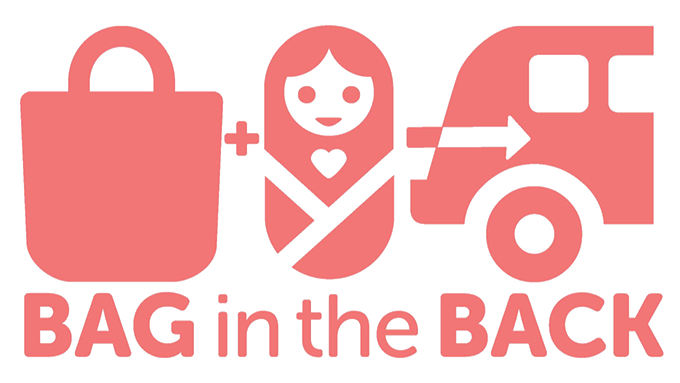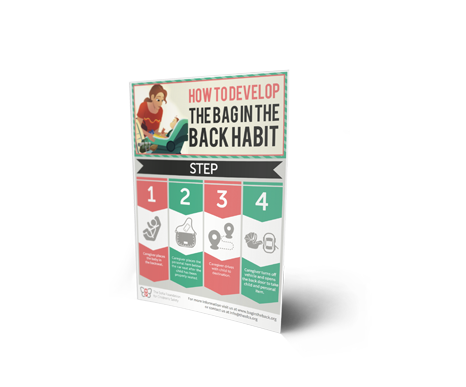Translate this page
Who is at risk?
Here's what you can do about it:
All caregivers are at risk of
unknowingly leaving a child in a car
Caregivers who have unintentionally left children in cars come from different socioeconomic backgrounds, educational levels, genders, and ethnicities. After a child dies in a hot car, the caregiver is extensively investigated by police and child protective services. The vast majority are found to be loving caregivers.
Parents who have unknowingly left a child in a car describe three main cognitive processing errors that seem to account for not realizing the child was left behind. Sometimes parents experience one of these processing errors and other times they experience two or three of them. Sadly, loving and prioritizing a child does not prevent the “brain mistakes” that lead to unknowingly leaving a child in a hot car.
Typical cognitive errors that can result in leaving a child in the car include:
Autopilot due to change in routine
We all become efficient in our everyday lives because our brains have the ability to carry out routine behaviors without much thought. The part of the brain that controls routine behaviors is quite powerful and can override the part of the brain that controls decision-making and planning.
Imagine that your normal routine is to drive straight home from work at the end of the day, but you plan to stop at the grocery store on the way home. One minute you can have every intention of stopping at the store, and the next minute you realize you have driven straight home without stopping.
The majority of parents who unknowingly leave a child in a car report a routine change prior to or during the drive. When a parent plans to drop off the child at daycare but experiences a routine change before or after leaving the home, the part of the brain in charge of routine behaviors can override the planning part of the brain, therefore leading the parent to follow through with his or her normal routine.
For example, if a parent does not normally take the child to daycare, he or she may drive straight to work without making the daycare drop-off. Or, if a parent normally does the drop-off and then stops for coffee, but decides to get coffee first, he or she may drive straight to work after getting the coffee rather than dropping off the child.
During COVID-19, parents are operating with changed routines and under a great deal of stress. This puts them at great risk of experiencing this sort of cognitive error.
Auto-pilot due to stressful situation
When a stressful situation triggers an emotional response, we are usually still able to execute routine behaviors, but processing newer information is much more difficult.
For example, let’s imagine that you plan to meet a friend at your favorite coffeehouse. On your way to the coffeehouse, your friend calls and asks you to meet him at the park instead. Right after you agree and hang up the phone, an oncoming car enters your lane and you narrowly miss being in a head-on collision. You are really shaken up and feeling anxious. Out of habit, and because it was the original plan, you drive to the coffeehouse, losing awareness of the plan to meet at the park. You only remember the new plan to meet at the park when your friend calls and asks where you are.
Likewise, some parents who have unknowingly left a child, report dealing with a stressful situation on the way to work that causes them to lose awareness of the child in the backseat.
During COVID-19, parents are operating with changed routines and under a great deal of stress. This puts them at great risk of experiencing this sort of cognitive error.
False memories
Many of us imagine situations as a way to problem-solve or prepare to take action. Imagining something can cause our brain to believe it actually happened. This phenomenon is well-documented and known as imagination inflation.
For example, you may imagine what you will say in an email reply to your friend’s request that you join her for dinner on Friday night. Then, you might not realize your brain has checked the email response off your mental to do list, as if thinking about it is the same as doing it. Some parents who have left their child in a car, firmly believed they had dropped the child off. One common theme in cases like this is that parents often visualized how the drop-off would go. They report details like imagining who they talked to at daycare, what the daycare teacher said to them, and how their child handled the drop-off. It appears that this type of “imagination inflation” can lead to the development of a false memory.
Many parents who have unknowingly left a child in a car report they thought of their child often throughout the day. These parents did not forget their child in the car; they misremembered the chain of events from the morning routine.
What are memory distortions?
Memories are reconstructed in many different ways after events happen. Memory distortions is when the recollection of the memory is different from what actually happened. Memory distortions are very common. Different lines of research have shown that 60% of adults can experience different types of memory distortions.
Imagination inflation refers to the finding that imagining an event which never happened can increase confidence that it actually occurred. Imagination inflation can result in a false memory, an apparent recollection of an event that did not actually occur.
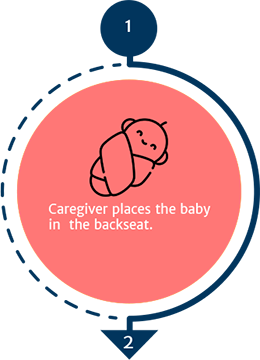
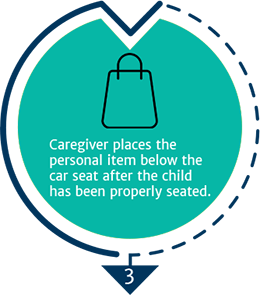
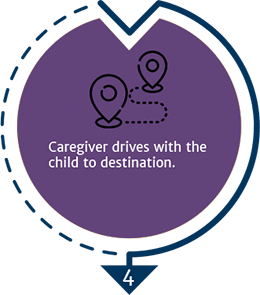
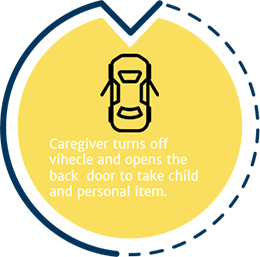
Downloads
Empower & Teach
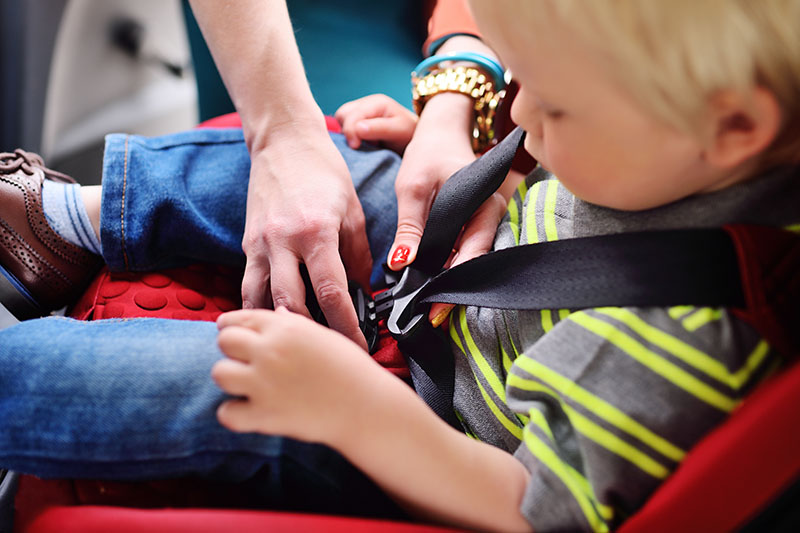
Protect the lives and wellbeing of infants and children by helping us encourage parents & caregivers to adopt the Bag In Back habit.
Our informational video informs parents and caregivers about the risk of vehicular heatstroke and educates them about the Bag in the Back habit.
